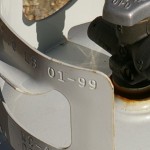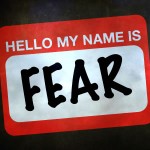 The following is a backbone of a concept that every small town Mayor or Council should consider BEFORE the collapse happens. Granted, this will not solve every problem. If you have a plan such as below you can then incorporate ideas for solving problems. For example, if there is a nuclear fallout issue, then consider what might need changed or added, but use this as your primary example of what can be done to increase your town’s survival.
The following is a backbone of a concept that every small town Mayor or Council should consider BEFORE the collapse happens. Granted, this will not solve every problem. If you have a plan such as below you can then incorporate ideas for solving problems. For example, if there is a nuclear fallout issue, then consider what might need changed or added, but use this as your primary example of what can be done to increase your town’s survival.
The collapse happens:
- Small towns usually means limited law enforcement
- Roving mass of people out of cities – imagine the zombie movies
- Small towns can be viewed as a stopping point to spend the night or find food and water
- Small towns are close to agricultural areas so food is easier to find such as eggs and grain
- Small towns can be victimized much easier
- Small towns are usually closer knit families and are usually related in some ways
The question is how do you minimize the risks and increase the benefits: PLAN!
First:
- Make a map
- List natural resources:
- Lakes/ponds within the city limits
- Trees/parks/forests
- Coal mines
- Quarries
- Creeks/rivers – can be a liability
Assets:
- Abandoned cars and homes
- Variety of skill sets
- Library
- Hardware store
- Restaurants
- School
- Sewing machines
- Thrift stores
- Ham radio operators and gear
- Good geographical location
Liabilities:
- Creeks or rivers
- Rail lines
- Roads
- Drug addicts
- Health issues
- Bad geographic location
Once trouble happens establish armed guards with radios:
- At the roads, rails, and waterways, about ¼ mile from town
- Sniper points for forward observation and backup
- Have roamers to keep an eye on inside the town
For my small town that’s about 18 people that’s needed, so triple that number for a 24/7 crew.
Once the guards are established meet at a church or school and explain the situation with the best available information.
Request volunteers for the following jobs:
- Water distillers
- Mining
- Lumberjack
- Foundry
- Security
- Medical
- Gardening
- Seamstress
- Animal wrangler
- Hunters
Everybody CAN work. A paraplegic can sew by hand or toss wood into a fire for the distillation plants. Idle hands are tools for the devil, so give kids a job too!!
- Age < 2 can be baby sat by those who are doing the sit down work like sewing
- 2-5: Garden Patrol: Chase bunnies and squirrels away – The gardeners would use teenagers to help with the younger kids
- 5-18: Split ½ day in school, ½ day in the same work as adults as possible. Some can carry small loads of wood or coal in back packs – age appropriate loads and work. At about age 15 figure out who has natural talent and encourage them to learn a particular trade. Get the next generation prepared for living.
- Adult: Jobs can and should be rotated around.
What should be done first?
- Once security is set up – rotate 6 on / 6 off schedule
- Find every abandoned car and remove the alternator, battery, light fixtures, wiring, radiator fans, radiator, and coolant.
- In every abandoned home rip out any water heaters, lighting fixtures, wiring, and plumbing
- Have kids carry as much as they can to a central location like an empty classroom in the school. Have a few locations if you have a bunch of cars and homes
As the homes are being dismantled keep the following:
- Nails and screws
- Windows
- Long pieces of lumber / siding
- Insulation
- Carpet
- Bricks and masonry
Believe it or not you can make solar ovens with the above items!
Once you have a a few hot water heaters, remove the outer shell and insulation. Cut a 4 inch hold midway down the middle, and then 90 degrees to that cut out a 8” x 24” rectangle. Once it’s on it’s side you now have a steel wood stove. Fashion a few pipes over the burning area to boil water and now you can distill water easily. Have gallon jugs handy and kids can carry water to the elderly and infirm.
Any rainwater caught can be used for drinking as well. Create some reservoirs as I discussed in a previous show.
Depending on your population use the restaurants for the main dining areas. They are set up much better for crowds, more storage areas, and as you come to have a meal, you can bring stored food that you’re sharing so that not all the food is in the restaurant to prevent looters from stealing your food. The restaurant also provides socialization. It’s very important as information can be discussed, plans made, and then implemented.
Those in leadership should consider the following:
- Crazy Joe has an idea. Mayor should say, “Joe, you build a working prototype and if it works well enough, we’ll make more”
- Beware the ethereal concepts such as “We could be like the ancient Greeks or aliens or…” This is a distraction and waste of time
For electrical power:
Creeks/rivers:
- Make water wheels with the alternators. As many as you can, and attach them in parallel to a battery bank. Run car headlights for security areas, along creek beds, railways etc.
- Tie the lights in with the motion detectors from the frogs, owls, and what other toys laying around. The relays from the abandoned cars will work great for that. As people try to creep up, the lights will come on. Think of it as a force multiplier
Windy areas:
Make windmills!
To supplement the power:
Make thermopyles with copper and steel plates. A small unit can provide 50 watts an hr, more than the Harbor Freight Solar Panels. Place them onto the steel wood burners for 24/7 power generation. If you put several onto a burner you can get about 1200W per day per unit.
Make a foundry:
Using wood and/or coal, melt the steel down from abandoned cars to to make nails, bolts, fireboxes for those homes that burn oil for heat. Put a radiator to the rear of the firebox to act as a heat exchanger.
The foundry can make aluminum netting to catch fish traveling down the creek or river. Put this fish into the town’s pond to build up your aquaculture.
Bullets can also be made, as well as arrowheads and animal traps
Seamstress:
- They get to use the power from the wind/solar/fire.
- They do the laundry and clothing repairs.
- Patch clothing and use the clothes in the thrift store as needed.
Laundry can be done with a standard clothes washer and hung outside to dry. Use a front load for less water consumption. Water is drawn in from a buck on top, and the grey water can go into another bucket for distillation.
Animal wrangler:
A single rabbit doe can produce over 300 pounds of meat per year. Use captured rabbits for breeding of females and eat the males unless they are bigger than your male. Use the weeds pulled from the gardens, parks, wherever, to feed them. Does can be re-bred every 6 weeks after giving birth.
Chickens, woodchucks, beaver, etc. Raise them if you can.
Use dogs for security, cats for rabbit, squirrel, and rodent control. Terriers are born rat hunters, let them do your job for you. Let the flesh of rats become maggot infested and then feed to the chickens for extra protein.
The wrangler also mucks the pens for the compost on the garden.
Tans hides for clothing.
Gardener:
Every horizontal, sunlit patch of ground should be gardened, unless you run out of seeds.
Teach kids how to weed and harvest the food.
Build a worm bed for better composting and gardening
Take window screens and make them into racks, place the veggies inside a dark car to be dehydrated passively.
Feed the weeds and bugs to the animals. Chickens will love the variety.
If a cat catches a rabbit, give the body to the wrangler for processing and skinning. They in turn give to the restaurant for dinner.
If gardening can’t be done year round, use the winter to consider next years crop, compost the garden, improve techniques, build more dryers, and then work where they’re needed.
Hunter:
RESPONSIBLE management of game – old and infirm animals first
Working in shifts they bring home the game to the restaurant and the skins to the wrangler.
Hunters can also manage the aquaculture of freshwater fish in the town’s lakes or ponds
Koi is Japanese for carp. You CAN eat them. Toss into the pond some rabbit guts and make those some big fish.
Lumberjack:
- Falls trees for firewood, but first uses all limbs from dead trees.
- Cuts down dead, diseased, and insect infested trees.
- Plants new trees where possible.
Trees such as apple and cherry are tended to. Mulch and compost material can be laid down. Limbs from these trees should be chipped for smoking meats.
Miners:
- Break coal down so kids can carry it home.
Have the football team POSITIVELY encourage the younger kids when hauling coal back to town. The kids should have armed guards when moving out of town.
Use the mines for storage and as a safe location for bad weather or hostile actions. Put in bunks for such events.
Ham Radio:
Provides weather information from WEFAX satellite images
Operator listens to the chatter but does not engage
Uses kids as messengers to provide the mayor with up to date information.
Medical:
Maintains everyone’s health via counseling
Maintains a medical herb garden – See my site for a seller of such a garden.
Practices good old fashion doctoring, and provides care for the deceased.
How to deal with refugees:
- Stop them well away from security check points
- Using a digital camera, take photos
- Find out their intent:
- If they are just passing through then explain what you are going to do
- Take their bags and have another team escort them out.
- Keep their bags within their view
- Return the bags, and if they have small children, give them a toy
- Refill their water containers
- If they are needing a place to stay consider:
- Their beliefs & faith are agreeable with those who make up your community – Ed.
- Their skills
- Their health
- Current load on resources
- NEVER LET THEM DO SECURITY
- Explain why you are doing this and the penalty for lying
- Consider them to be new blood. We don’t want a family tree that’s a straight line
- Find them a home in an empty APARTMENT
- Give them a schedule to follow
- Do a meet and greet at the restaurants
- Trust your gut. If you think they might be trouble, send them on.
- If you are low on resources, tell them and send them on.
So what is in the day in the life like:
Wake up at sunrise and wash face and hair, maybe shave. Carry some food down to the restaurant and have a chicken sausage and omelet, some fruit and a doughnut for breakfast. After that, head to work. Today the misses is doing seamstress duties and washing our clothes. Kids 1 & 2 are going to school, and then #1 is in the garden, #2 is hauling wood to the distillers. Lunch is brought to us by a teenage runner. It’s going to be rabbit stir fry and apple juice. After work, we head to the restaurant for dinner – we split a trout, have some mixed veggies and potatoes. People use the local school to shower. Water is collected on the schools roof, fed through to a wood burning hot water heater, and then fed to the showers. Soap is made from chicken fat and woo dashes. Because this is Saturday – it’s the weekly social. Kids have their dance and adults have their card games and sample the latest moonshine. The misses is going to show off her handmade fur lined rabbit skin boots. Tomorrow is church so we leave early. Kids come home to a solar lighted home with us listening to music from the laptop we charged up today at the battery bank. We then head to bed to be woken by the church bells.








